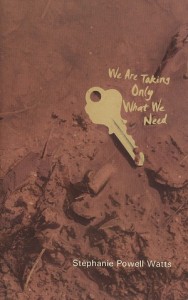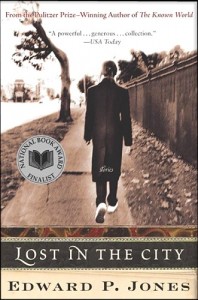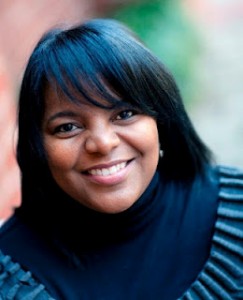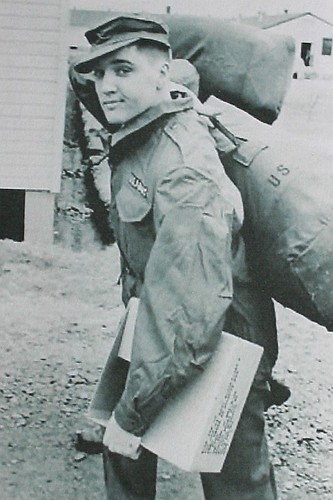Growing up in rural Missouri, near where Stephanie Powell Watts received her PhD at the University of Missouri-Columbia, my grandma used to throw out what we called “thought bombs.” You’d be halfway down the dirt road before you realized what grandma had meant; her advice had to be digested before it could be applied. It was never heavy-handed, but it was almost always right.
Long after I finished reading the stories in Watts’s debut collection, We Are Taking Only What We Need (BkMk Press), I found myself contemplating the characters and their decisions. I’d return to their struggles and see new hope. I’d question the desperation of a woman stuck in the trap of home. I’d wonder whether small town escapes always have to end in tragedy. The ‘thought bombs’ kept exploding across the Carolina hills Watts paints so vividly and I almost felt my grandma lurking there, too.
We Are Taking Only What We Need, Watts’s first book, is a collection of ten short stories and was a finalist for the PEN/Hemingway Award, the Chautauqua Prize, and the John Gardner Fiction Award. Her work has appeared in the Pushcart Prize and Best New Stories from the South anthologies. She has also received The Atlantic nonfiction prize. Watts grew up in North Carolina, where many of the stories from her collection are set, and was a Jehovah’s Witness minister. She now teaches Creative Writing at Lehigh University in Bethlehem, Pennsylvania.
Watts and I corresponded over email about the trappings of small towns, the balancing act involved in achieving authenticity across multiple genres, and the truth of the characters hiding inside all of us.
Interview:
Melissa Scholes Young: In your interview with Karen Johnson of the BkMk Press you talked about how time has changed your perspective, and how your own lens as a writer influences your characters’ understanding. What brought about the shift? What was the process that led to “feelings and attitudes that took years to cultivate?”
Stephanie Powell Watts: I went to Elvis Presley’s home, Graceland, a few years ago when I was visiting Memphis. I didn’t really want to go. I didn’t know much about his music except the songs everybody knows and the old footage of Elvis gyrating in those tight little jumpsuits. By the late nineties, he seemed more of a punchline than anything else. But my friends were excited to go, and I went along.
What did you expect to see?
I expected to scoff and laugh at Elvis’s bad taste and silly choices, but I have to say I felt close to Elvis as a person in a way I never expected. I found myself wondering about the beautiful young man with sudden and incredible fame shopping to please himself, to impress and comfort his mother, looking for the things a young man would choose: cheetah prints, wild colors, the shiny and trendy, large animal-shaped objects. All of it touched me. I suddenly saw Elvis as a person. I have a reason for telling this story. Had I seen Graceland as a kid, instead of as a grown woman, I might have just gotten a good belly laugh at someone famous. But knowing more about the world: how hard it is, how much people are hurting, how–no matter who you are–you are just trying to get along and do good and secure a few people who might really love you. Knowing that life looks so easy from the outside, when you are a child, and everything seems open and just an arm’s reach away, but it is an illusion like the side mirror on your car—objects are further than they seem—and some of them are forever out of reach. Knowing all that made me empathize for the boy Elvis in a way I’m sure I couldn’t have managed earlier in my life.
You saw it with a writer’s eye. It sounds like Elvis became a well-developed character rather than just the stereotype.
His Jungle Room, instead of being a joke, turned into a scene. Can’t you imagine Elvis in everyday clothes in the showroom, looking at the furniture covered in various fake furs, saying, “Mama, it’s gonna be so cool?”
That does make it less tacky or at least the tacky somehow becomes endearing. You may have just made me love Elvis even more. In the same interview you said, “the past isn’t even real anymore,” when discussing your own teaching of creative writing. How do you help writers struggle to wed and/or to separate their fictional stories with their family stories?
I heard a comedian say that comedians first write about themselves, then about comedy and then about the world. Other kinds of writers do much the same thing. I think it is a natural impulse to look to your own past and history to discover the stories that move and inspire you. The problem is that the past is nebulous and waiting for a shape. What ultimately gives it form and context is the present. That’s the part of writing inspired by personal history that is exciting to me.
The shape you mentioned seems to come through characterization, but you don’t use stereotypes to develop your characters. Many of these women could be my neighbors growing up in rural Missouri. What is the most important move in creating this authenticity?
Millions of adult Harry Potter and Twilight and Hunger Games readers are proof that they don’t have to exactly see a mirror on the page to relate to the characters. People want to get the sense that a real person is in jeopardy and something meaningful is at stake for that person. I want people to read my characters and think that they are getting to know someone special. Maybe not necessarily a friend and maybe not someone they will ever get to know, but someone with great fears, desires and dreams who is worth their time and investment.

Your character Stephanie (not to be confused with you) in “Unassigned Territory” conveys such a real urgency in her decision to stay with the church or follow an uncharted path. Anybody who grew up in a small town can understand the feeling of being trapped, coupled with the fear of the unknown. How do you write about that need to flee without dismissing the value of small towns? Did you worry that the criticism might be misconstrued?
You’ve identified one of the most important issues of writing about people who are on the margins in some way. Show them flawed and human and doing the wrong things and you run the terrible risk of readers thinking that every person that looks like your character is exactly like your character. Show a perfect angel and people will call your characters sentimental and one-dimensional–and they will be right. The job of the writer is to show as much about the truth of a character as his or her ability will allow.
You seem to boil writing down to an act of almost defiance. Are you willing to risk falling off the tightrope for truth?
Truth is overrated in life, I think. Not because we don’t need it, but because it is variable and situational. In one of my stories, the mother refuses to acknowledge that her daughter committed suicide. I knew a woman like that in my real life. How important is the truth that the daughter took her own life? Her child was still gone to this world. A fact that her mother and anybody else who loved her had to live with. It gave the mother some comfort (maybe false comfort, but comfort) not to believe that her daughter was in such devastating pain when she lived. I can’t imagine trying to make that mother see “the truth.” What possible good could that truth ever be?
 Besides, the people who need that truth already have it. After a reading a few months ago, a man asked me about writing nonfiction and about the possibility of telling the truths in his life including his family secrets. I know that there are probably hundreds of books that tell the deepest, darkest and most humiliating of family stories, but my comment to him was to think about what his aim is. If a story needs telling because it will make you feel better to tell it, then take that story to a therapist, not a publisher. If a story needs telling because it has literary merit, because it shows what Faulkner calls “the heart in conflict,” and because it illuminates something essential and important about the human condition, then and only then should you write it.
Besides, the people who need that truth already have it. After a reading a few months ago, a man asked me about writing nonfiction and about the possibility of telling the truths in his life including his family secrets. I know that there are probably hundreds of books that tell the deepest, darkest and most humiliating of family stories, but my comment to him was to think about what his aim is. If a story needs telling because it will make you feel better to tell it, then take that story to a therapist, not a publisher. If a story needs telling because it has literary merit, because it shows what Faulkner calls “the heart in conflict,” and because it illuminates something essential and important about the human condition, then and only then should you write it.
My characters must also be true. Obviously not real people, but [they] must feel true. When people say that they don’t believe a character, I don’t think they are saying that the character doesn’t or couldn’t exist, but they are saying that you as the writer have failed in some crucial, technical way. If you live long enough, you know that you can find people who believe anything, say anything, do most anything you can think of, commit all kinds of crimes. There is no limit to what we as humans are capable of becoming and doing. The writer has to figure out how to create detail by detail, line of dialogue by line, description by description, how to make that person come to life in a way that feels real.
How do you teach your students to write the truth of a character? Can it be taught?
Early career writers, student writers, rely on clichés, stereotypes, and hackneyed descriptions that they’ve seen a million times to create characters. Those clichés are not just useless because they are tired and old, but because they aren’t showcasing real. It is the difference between going on a date with a man and going on a date with a mannequin. The mannequin looks like a man, has the shape of man, but doesn’t have the breath of life. He isn’t real. Learning to understand that difference between the shape of the real thing and the real thing is the key to understanding character. No one wants to date a mannequin. He has no money for dinner.
He wouldn’t be a very good listener either. He’d be quiet, of course, but that’s not the same thing.
Speaking of listening, many of your characters struggle desperately to be understood. They want more than anything for someone to listen, to hear their story. I’m thinking of Stephanie, but also of Shelia in “Black Power,” and Aunt Ginny in “Family Museum.”
There are two reasons many of my characters aren’t understood. First of all, people who sense themselves powerless are often mute in literature. They can’t speak because they have no voice deemed important enough for the wide world to hear. This muteness festers as depression, rage, self-hatred, and occasionally introspection leading to a voice. Secondly, people don’t often say what they really need to or want to say.
How do they find a voice to do so?
We have to schedule special moments in life. Weddings and funerals come to mind. Then we actually say what we really mean. We say, “Stay if you want to,” when we mean “Please don’t leave me.” We want to say, “I will love you forever no matter what,” but end up saying, “I’ll be here, like I have a choice.” One of the reasons romantic comedies and soap operas (including Real Housewives) appeal to so many people is that the characters actually say what they feel–total fantasy, for sure, but satisfying in a “Wouldn’t it be pretty to think so” way.
That makes me think of how much Tasha holds in, how much she doesn’t say to her Mama in “Welcome to the City of Dreams.” I love the scene where Tasha wants to call out her Mama for saying “taupe” instead of “tan.” As a reader, you know from the start that this won’t have a fairy tale ending for Tasha and Gary. The final scene with their Daddy could be straight out of Real Housewives.
The stories in this collection seem drawn from corners of your own life. You name a character Stephanie, and the details from your experience as a Jehovah’s Witness minister are intoxicating, especially in “Highway 18.” They’re fictional, yet you write nonfiction, too. Do you find it challenging to separate fact from story? How do you balance the demands of each genre?
 People want to tell you their stories. And they are fascinating. I can think of, just off the top of my head, a dozen love stories, coming to America, coming to the city, near-miss stories, that I’ve heard from friends and relatives in my life. They are all interesting and all worthy of some kind of exploration. They are the raw materials that make up our memories and shape who we are. By themselves, however, these ideas are not usually real stories. What I mean is: they are tidbits, moments, anecdotes, sweet, scary or silly elements that could ultimately go into making a story. My job as a writer is to give those raw materials shape, to Frankenstein-monster them into something meaningful to the people who might read them. The process of making that true story or that fictional story is a similar one. I need good ingredients and an eye for seeing more in the event or scene than the scene might initially suggest. Good fiction and good nonfiction are fruits of the same tree. You must draw in a reader and make her feel as if a world is unfolding all around her. Of course in nonfiction, readers sign onto the experience with the understanding that the writer didn’t make up that world or characters, but other than that, the sensory experience is the same.
People want to tell you their stories. And they are fascinating. I can think of, just off the top of my head, a dozen love stories, coming to America, coming to the city, near-miss stories, that I’ve heard from friends and relatives in my life. They are all interesting and all worthy of some kind of exploration. They are the raw materials that make up our memories and shape who we are. By themselves, however, these ideas are not usually real stories. What I mean is: they are tidbits, moments, anecdotes, sweet, scary or silly elements that could ultimately go into making a story. My job as a writer is to give those raw materials shape, to Frankenstein-monster them into something meaningful to the people who might read them. The process of making that true story or that fictional story is a similar one. I need good ingredients and an eye for seeing more in the event or scene than the scene might initially suggest. Good fiction and good nonfiction are fruits of the same tree. You must draw in a reader and make her feel as if a world is unfolding all around her. Of course in nonfiction, readers sign onto the experience with the understanding that the writer didn’t make up that world or characters, but other than that, the sensory experience is the same.
Is it a difficult switch?
I don’t mean to contradict what I just said, but I have to say that I do find the switch challenging. When I’m writing fiction, I’m always asking myself, “What HAS to happen now?” not what COULD happen, or what would be cool if it happened, but given the nature of the character, the time and place of events, and the circumstances, what HAS to happen. In nonfiction, what has to happen often does happen, however we don’t always see that in the process of living. Often it is only years later that we see how what we thought of as boring or perverse or insane or just plain weird was actually inevitable and maybe even predictable.
Which genre are you writing in now?
I am revising a novel and working on a nonfiction project about mental illness. In the novel, a young man in the early stages of schizophrenia has been hit and killed in a car accident while he was walking on a back road in the country. His family, though not extremely religious, come to believe with the help of their minister that he is not actually dead and can be prayed back to his life with them. This story is very loosely based on a real event. The nonfiction project is a collection of essays about a small African American community in North Carolina and the responses of the community members to a murder committed by one of the mentally ill residents.
You’ve professed your admiration for Edward P. Jones’s Lost in the City. What do you admire so much about the work?
 The writers I love write about the trials of everyday life. There is a timeless quality to the writing. I feel like I could be sitting around a fire after a hunt-and-gather or in a college classroom. There is a sense that the writer is in control of the story and can speak through the characters with flawed knowledge gained through hard and sad experience. These writers have something profound to say about what it means to be alive, not because they are smarter than we (there is a great sense of the divine in their writing, but the god these writer evoke is a weary and empathetic god), but because they are further down the road and have just walked through the calamity themselves. Their stories are full of myth and even wonder, a word we don’t often use about people or characters older than twelve. The characters these writers create are ordinary people whose greatness is often not measured in awards, huge wealth or high station, but in their ability to just keep going. These characters are the 99%. Toni Morrison, Gayl Jones, Zadie Smith, Richard Ford, Jhumpa Lahiri, Thomas Wolfe, Lorrie Moore, all write these kinds of stories and characters. Amazing writers. You asked about Edward Jones. I am floored by this guy. If I had a hat, I’d take it off to him. He is da bomb. He weaves the present with the past and even the future seamlessly; you feel like you’ve experienced a Vulcan mind meld with his characters. You know them, their feelings, loves, intentions. You ache for them. I want to ask him to show me how to “do like you,” but I don’t want to seem needy. If I didn’t love Edward Jones, I’d have to hate him. Come to think of it, I do hate him.
The writers I love write about the trials of everyday life. There is a timeless quality to the writing. I feel like I could be sitting around a fire after a hunt-and-gather or in a college classroom. There is a sense that the writer is in control of the story and can speak through the characters with flawed knowledge gained through hard and sad experience. These writers have something profound to say about what it means to be alive, not because they are smarter than we (there is a great sense of the divine in their writing, but the god these writer evoke is a weary and empathetic god), but because they are further down the road and have just walked through the calamity themselves. Their stories are full of myth and even wonder, a word we don’t often use about people or characters older than twelve. The characters these writers create are ordinary people whose greatness is often not measured in awards, huge wealth or high station, but in their ability to just keep going. These characters are the 99%. Toni Morrison, Gayl Jones, Zadie Smith, Richard Ford, Jhumpa Lahiri, Thomas Wolfe, Lorrie Moore, all write these kinds of stories and characters. Amazing writers. You asked about Edward Jones. I am floored by this guy. If I had a hat, I’d take it off to him. He is da bomb. He weaves the present with the past and even the future seamlessly; you feel like you’ve experienced a Vulcan mind meld with his characters. You know them, their feelings, loves, intentions. You ache for them. I want to ask him to show me how to “do like you,” but I don’t want to seem needy. If I didn’t love Edward Jones, I’d have to hate him. Come to think of it, I do hate him.
Further Links & Resources
- Read a review of We Are Only Taking What We Need at the Oxford American.
- Listen to a radio interview with Stephanie Powell Watts.
- Read an excerpt from “Unassigned Territory,” a prize-winning story from the collection.







